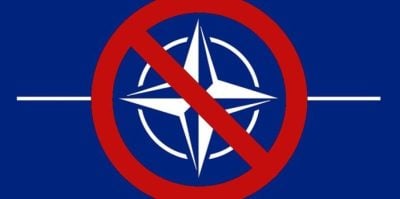Germany: “The Manifesto For Peace”. Stop the War in Ukraine. Cease Fire and Peace Negotiations

All Global Research articles can be read in 51 languages by activating the Translate Website button below the author’s name (desktop version)
To receive Global Research’s Daily Newsletter (selected articles), click here.
Follow us on Instagram and Twitter and subscribe to our Telegram Channel. Feel free to repost and share widely Global Research articles.
***
This article was translated from German, to consult the original version published by Junge Welt,
click Junge Welt.
The “Manifesto for Peace” presented on Friday by left-wing MP Sahra Wagenknecht and feminist Alice Schwarzer is meeting with steadily growing support. Around 400,000 people had signed the online petition by Tuesday. The petition calls on Chancellor Olaf Scholz to “stop the escalation of arms deliveries” in light of the threatening expansion of the Ukraine war into a possible nuclear or world war.
He said the chancellor should “take the lead at both the German and European level in a strong alliance for a cease-fire and peace negotiations.”
For Feb. 25 – one day after the anniversary of Russia’s attack on Ukraine – Wagenknecht and Schwarzer, along with retired Brigadier General Erich Vad, are calling for a large rally in front of the Brandenburg Gate in Berlin. The right-wing conservative general, who was military advisor to former German Chancellor Angela Merkel, is also among the 79 initial signatories of the manifesto, some of whom are prominent. They include such diverse personalities as theologian Margot Käßmann, singer-songwriter Reinhard Mey, MEP and chairman of the satirical party Die PARTEI Martin Sonneborn, CSU politician Peter Gauweiler and former EU Commissioner Günter Verheugen.
The co-chairman of the AfD, Tino Chrupalla, who last week had presented a “peace initiative” of his parliamentary group, which was nationalistic in its core but similar in its demands, professed on Friday on Twitter to have also signed the petition. For Wagenknecht’s NATO-friendly opponents, both inside and outside her party, this was a welcome opportunity to smell a “cross-front”.
Motions to support the manifesto and the peace rally came from various currents and branches of the Left Party. In two motions to the Berlin state executive committee and the executive committee in Saxony, which have not yet been dealt with, extra-parliamentary activities of the peace movement have recently taken place “mostly without the support of our party”. The rally on February 25 offers
“the perhaps unique opportunity to achieve an important success for the peace movement in our country with a nationwide mobilization and a very high number of participants.”
According to Junge Welt, corresponding motions are to be introduced in other state associations.
At the meeting of the federal party executive committee on the weekend in Berlin, there were six motions on the agenda item “Stop the war in Ukraine”.
For example, the Federal Spokespersons’ Council of the Socialist Left had called for support for the initiative of Wagenknecht and Schwarzer. The federal speaker’s council of the Communist Platform (KPF) tabled a motion – without reference to the manifesto – according to which the party must reject sanctions against Russia as well as arms deliveries “in any direction”.
The Left Party should call on the German government to “take diplomatic steps that will help bring about renewed negotiations between the warring parties and, first of all, a cease-fire.” Ellen Brombacher, a member of the KPF national spokesperson council, justified the motion, saying that it was necessary to end the situation in which right-wing demagogues can make people believe that the AfD is the German peace party. “It can’t be that a Mr. Chrupalla dictates to us with a stroke of his pen how we relate to peace policy initiatives.”
The discussion of the motions took place in closed session on Sunday, Junge Weltlearned from the KPF. The three proposers who were not members of the party executive, including Brombacher, were therefore unable to participate. Since a motion of the party executive board, which had been voted on first, had found a majority, the other five motions – including two on the peace rally on February 25 – had not even been dealt with. The executive committee motion had not yet been published at the time of jW’s editorial deadline.
*
Note to readers: Please click the share buttons above. Follow us on Instagram and Twitter and subscribe to our Telegram Channel. Feel free to repost and share widely Global Research articles.
Featured image is from The Transnational

